 |
|||||
 |
|||||
Sept. 23, 2014 |
|||||
Baylor named among nation's top 20 business schools for networking
There's a reason our alumni are known as "Baylor Nation." The Baylor family stretches worldwide; there's no
doubt that, even after leaving campus, you'll continue to run into Bears flinging their green and gold afar. And when that run-in happens at a networking event or job interview, you can always expect a Baylor Bear to be helpful.
We've long known that to be true, so it's nice to see an outside source backing up our experience. A recent study named Baylor's Hankamer School of Business among the nation's top 20 business schools for networking. It's an impressive group of universities: Stanford, Dartmouth, Notre Dame, Harvard -- and there's Baylor at No. 11, ahead of others in the top 20 such as Texas A&M, Emory, Wake Forest and Yale.
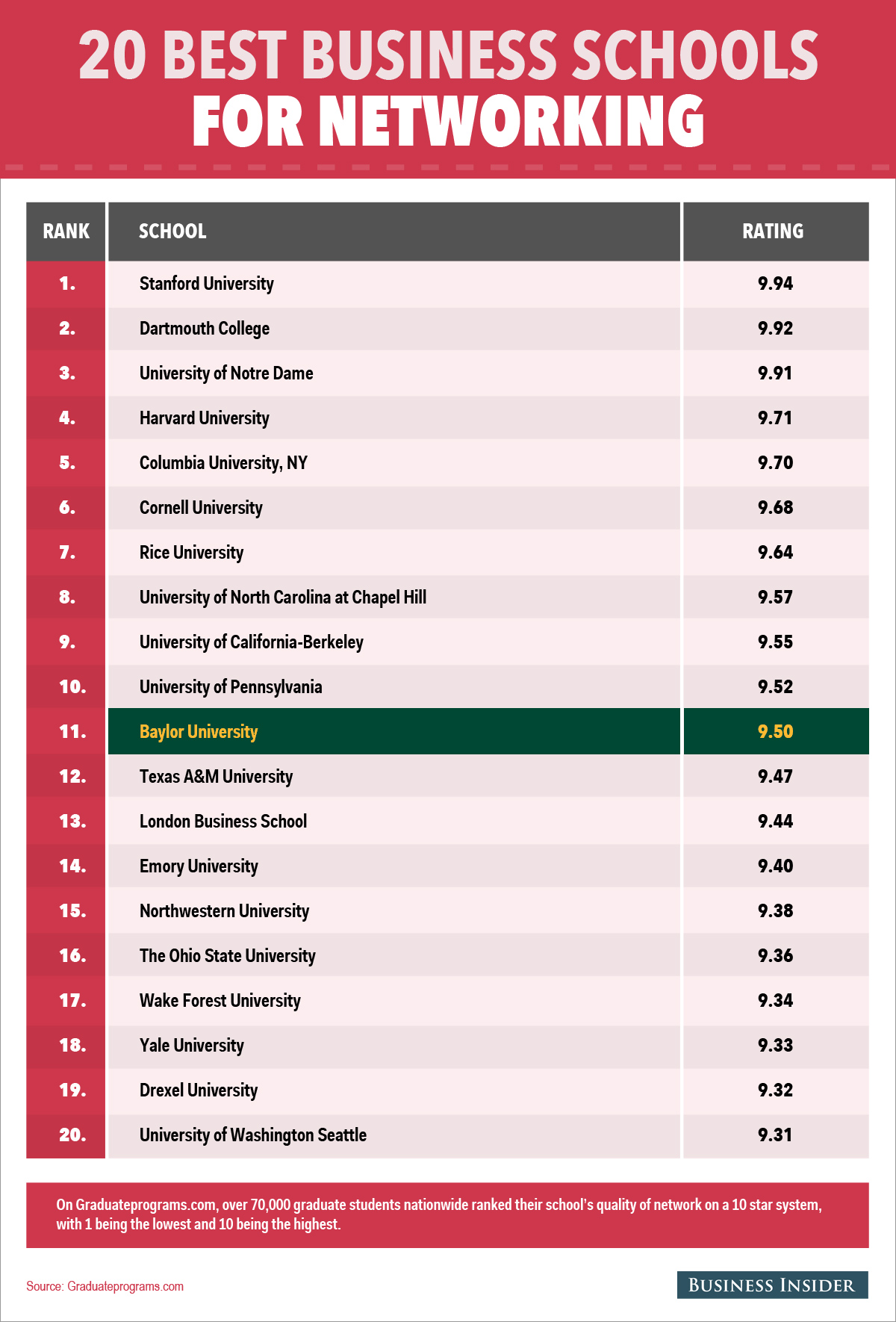
Baylor's strong alumni network plays a huge part when it comes to success beyond graduation. Looking to connect with fellow Bears in your city? Get involved with the Baylor Alumni Network; its staff and volunteers organize
hundreds of events a year for Bears everywhere, helping graduates build their professional networks, discover business opportunities, become Baylor mentors or mentees, and more.
If you're a Baylor alum, find a network in your area and start (re)connecting with your fellow Bears.
Sic 'em, Baylor alumni!
Penland dining hall, South Russell get new looks
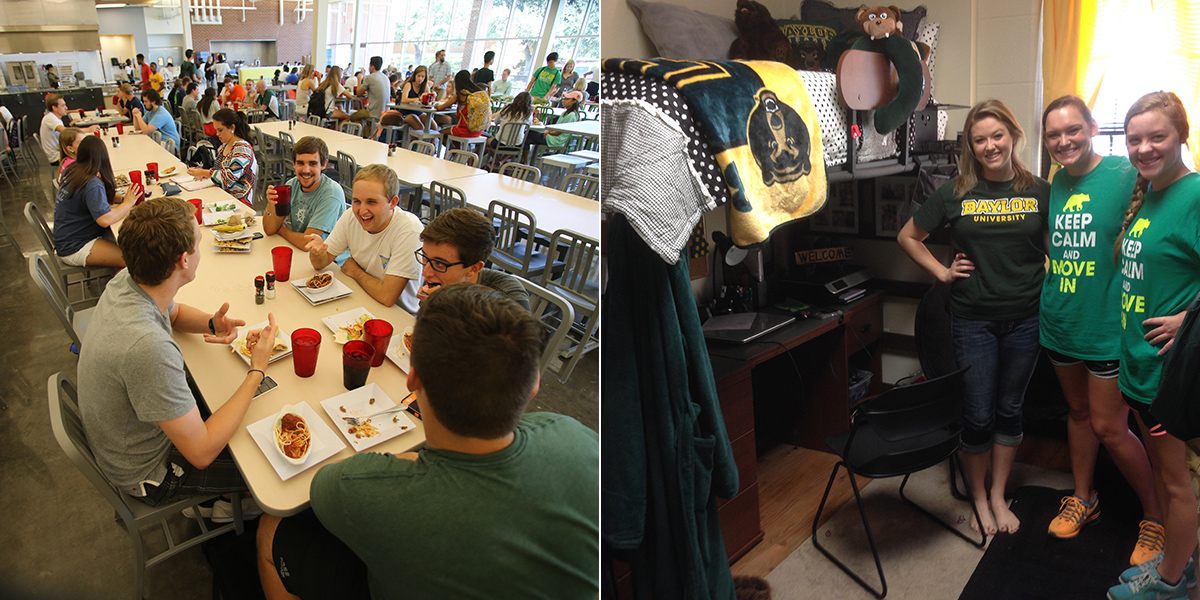
Penland -- Baylor's "crown jewel of campus dining"? South
Russell -- a 21st-century residential hall?
It's a new day at Baylor in more ways than one. As the eyes of Baylor Nation have been focused on McLane Stadium's rise on the banks of the Brazos, other projects have also been underway elsewhere on campus. In addition to the stadium, the beginning of the fall semester saw the opening of the newly renamed Penland Crossroads dining hall and
the renovated South Russell Hall.
With 1,100 indoor and outdoor seats and vastly improved food variety, the new Penland Crossroads is now "the crown jewel of campus dining," as Director of Dining Services Brett Perlowski put it. Expanding out the back of Penland all the way to 4th Street gives an additional 24,000 square feet, making it the largest dining hall on campus. Crossroads features
open, kitchen-less cooking areas (similar to Baylor's most recent new dining hall, at East Village), including a full wok, smoker, fresh tortilla machine and bakery.
[SEE PHOTOS of Penland Crossroads' new look.]
Pork tenderloin, sausage and ribs from the new smoker have been particularly popular. Penland Crossroads also offers a
series of diet- and allergy-friendly options, including vegan and no-gluten-added foods. There's even a dietician/nutritionist on staff. Last but not least, Penland now has its own P.O.D. convenience store.
Built in 1967, South Russell has also undergone some much-needed updates. Rooms are now furnished with movable furniture, including a loft bed, desk and chest of drawers, even in the 19 new single-occupant rooms. The door locks can be opened via a phone app or
text if students are locked out.
[SEE PHOTOS of South Russell, post-renovation.]
A full kitchen is available for residents and their guests, along with new quiet study spaces and community lounges, a game room and fitness room, and a reflection room for meditation and prayer. Wi-Fi is available throughout the building, even in
individual rooms. And the hall now has a dedicated space for faculty-in-residence (Dr. Mona Choucair, BA '86, PhD '00, is the first) as well as improved living spaces for the hall director and resident chaplain.
South Russell is the first of Baylor's traditional residence halls to have received the year-long remodel; work on North Russell is currently underway, with plans to renovate Martin, Penland, Collins, Alexander, Allen-Dawson and Memorial over the next 7-10 years.
Sic 'em, Bears!
Baylor profs honored for excellence in teaching and mentoring
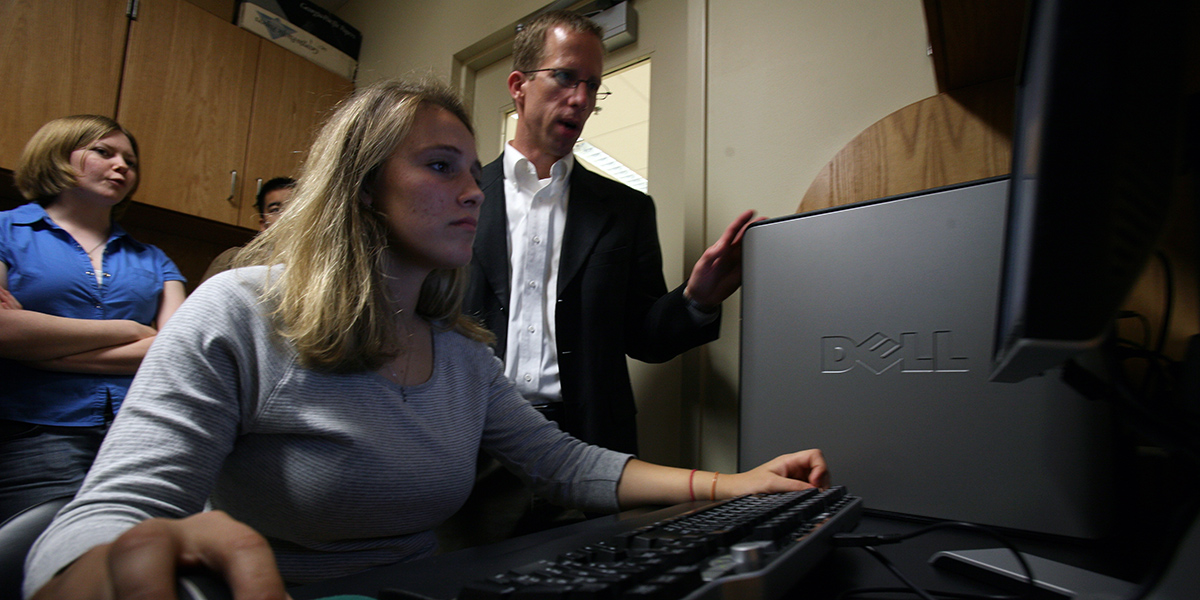
If you were to look inside the classrooms at Baylor, you'd quickly see some of the nation's best professors teaching
and mentoring future Baylor alums.
Already this fall, two Baylor professors have been recognized for excellence in working with students in their disciplines. Dr. Wade Rowatt, professor of psychology and neuroscience, and Dr. Andrea Dixon, associate professor of marketing, each received awards for their
work with Baylor students from the top organizations in their fields.
Rowatt (pictured above) was awarded a national mentoring award by the American Psychological Association, recognizing his contribution to the psychology of religion through mentoring individuals who have become active in the field. Since joining the Baylor
faculty in 1997, Rowatt's focus on the study of behavioral and relationship traits like humility, prejudice and deception has inspired numerous students to go into the field and advance the study of psychology.
Dixon received the 2014 Excellence in Teaching Award from the American Marketing Association,
recognizing her contributions for knowledge creation and her excellence in sales teaching. This top honor is not her first award; she's been honored for her teaching by Baylor, the Sales Education Foundation, the Academy of Marketing Science, and numerous other organizations. A professor in Baylor's Hankamer School of Business since 2009, Dixon also serves as executive director for both the Center for Professional Selling
and the Keller Center for Research.
Drs. Rowatt and Dixon are just the two latest examples of Baylor professors who are leaders in their field nationally, and who teach students every day to go out and follow in their footsteps.
Sic 'em, Dr. Rowatt and Dr. Dixon!
Baylor study brings national attention to potential for cell phone addiction
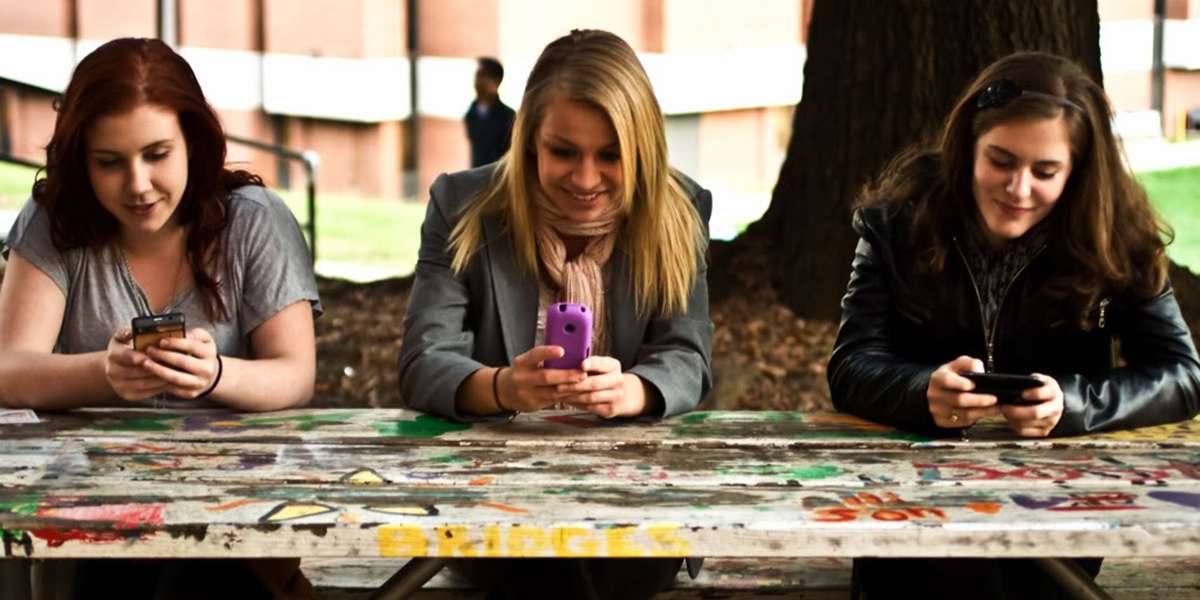
No matter where you go, you're likely to find someone engrossed in his or her cellphone while going
about the day's business (and quite a few of us are guilty of that ourselves). The omnipresence of the cellphone is particularly acute among college students, no doubt prompting a few parents to exclaim to their children, "It's like you're addicted to that thing."
If you've ever said or thought that, you could be on to something. A recent Baylor study examining cell phone
usage among college students revealed a real potential for cellphone addiction. The study, which has been covered in media outlets ranging from USA Today to Women's Health magazine, found that female college students spend an average of 10 hours a day using their
cellphone, while male college students aren't far behind at eight hours a day.
The survey examined 24 activities that people often utilize on their phone, like social media, email and other apps, and found that the more these options increase, the more likely addictions to the technology could form. Sixty percent of the college students surveyed admitted they could be addicted to their phone, and many admitted they become agitated when it's not in sight.
Despite
the ubiquity of cellphones, the impact of long-term usage of smartphones on all areas of our lives is not fully known. "The study was interesting because it fills a hole in the research so far," says Dr. James Roberts, a marketing professor in Baylor's Hankamer School of Business and the lead author on the study. "No one had looked at what were the
specific things that make a cellphone addictive. So we did."
"The Invisible Addiction: Cellphone Activities and Addiction Among Male and Female College Students" appeared in the Journal of Behavioral Addictions and is the first of its kind to examine the addictive properties of our mobile devices.
Sic 'em, Dr. Roberts!
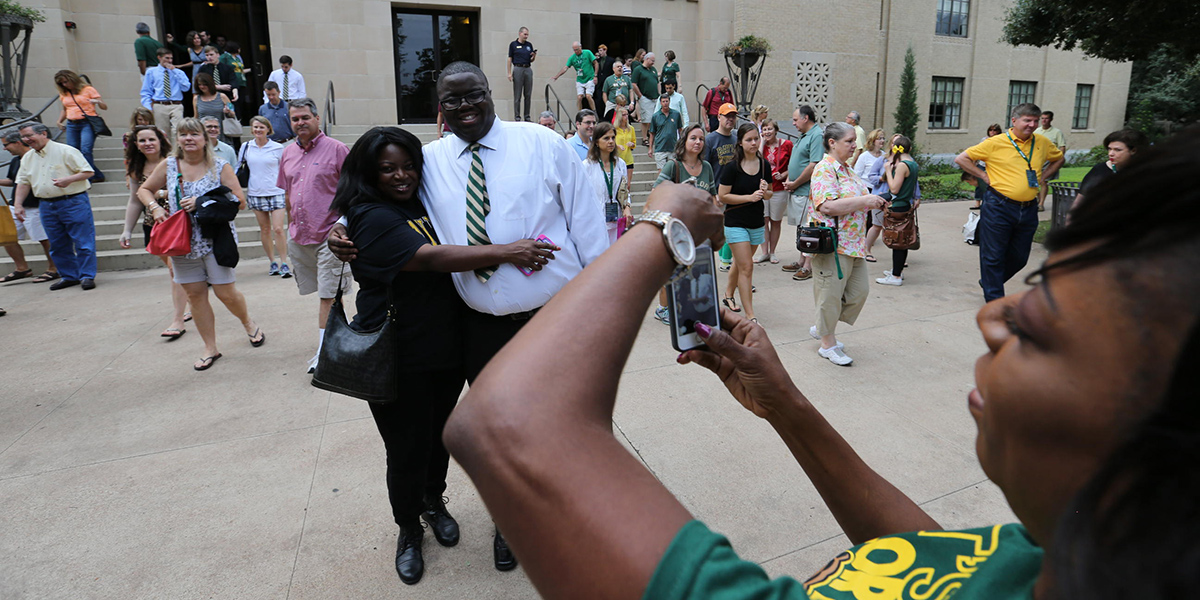 |
Family Weekend 2014 blends old and new traditionsThe Baylor family was especially large this weekend, as thousands of parents, siblings and relatives experienced campus life firsthand at Family Weekend 2014. Since the first gathering more than 50 years ago, Family Weekend (which has been known as Parents Weekend and other names previously) has allowed Baylor families to put faces to the names... |
|
|
|
||
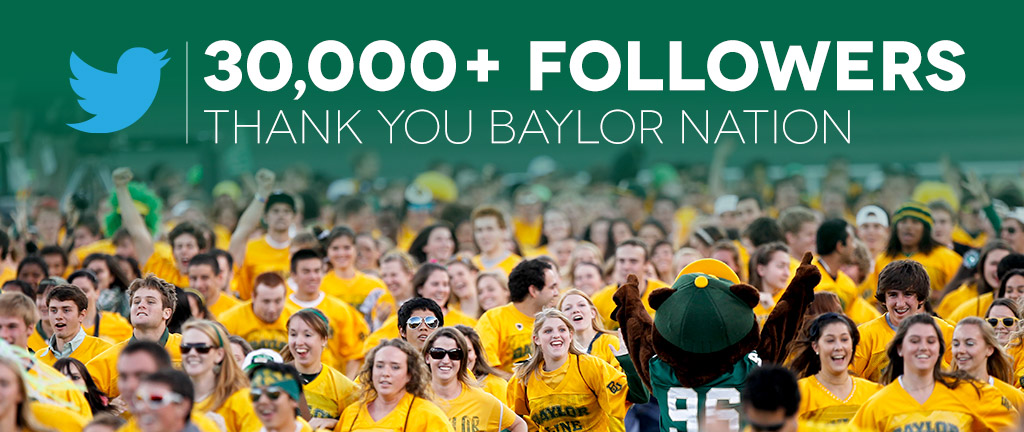 |
Baylor Twitter, Instagram accounts top 30,000 followersRecent surveys show about 20% of American adults are on Twitter, and about the same number is on Instagram. When you consider that Baylor has about 160,000 living alumni, that suggests the university should have about 30,000 followers on each platform. Lo and behold, that's exactly where Baylor sits today. In the last month, Baylor's official Twitter... |
|
|
|
||
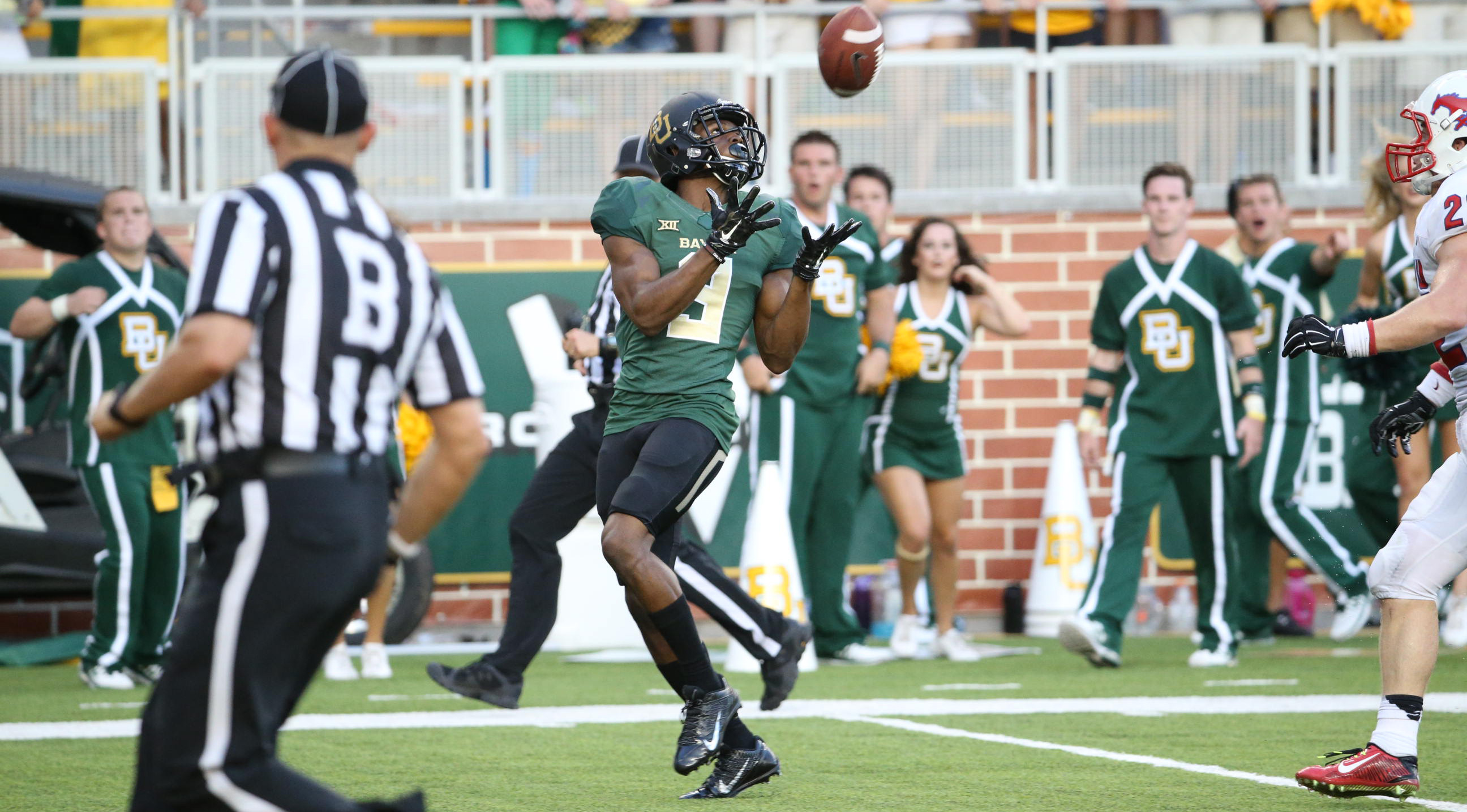 |
Freshman WR quickly recognized among nation's bestTo say nobody saw KD Cannon coming wouldn't be accurate. After all, the freshman receiver was one of the top 50 recruits in the country last year, when he chose Baylor over schools like Texas A&M and Oklahoma. But this -- well, this is almost too good to be true. With Baylor's non-conference schedule complete,... |
|
|
|
||
 |
Like the Baylor family refrigerator door, Baylor Proud brings you a sampling of the latest highlights from Bears everywhere; for more, visit our blog, subscribe to our RSS feed or follow us on Twitter and Pinterest. |
 |
|
To ensure receipt of our e-mail, please add baylorproud@baylor.edu to your address book. |